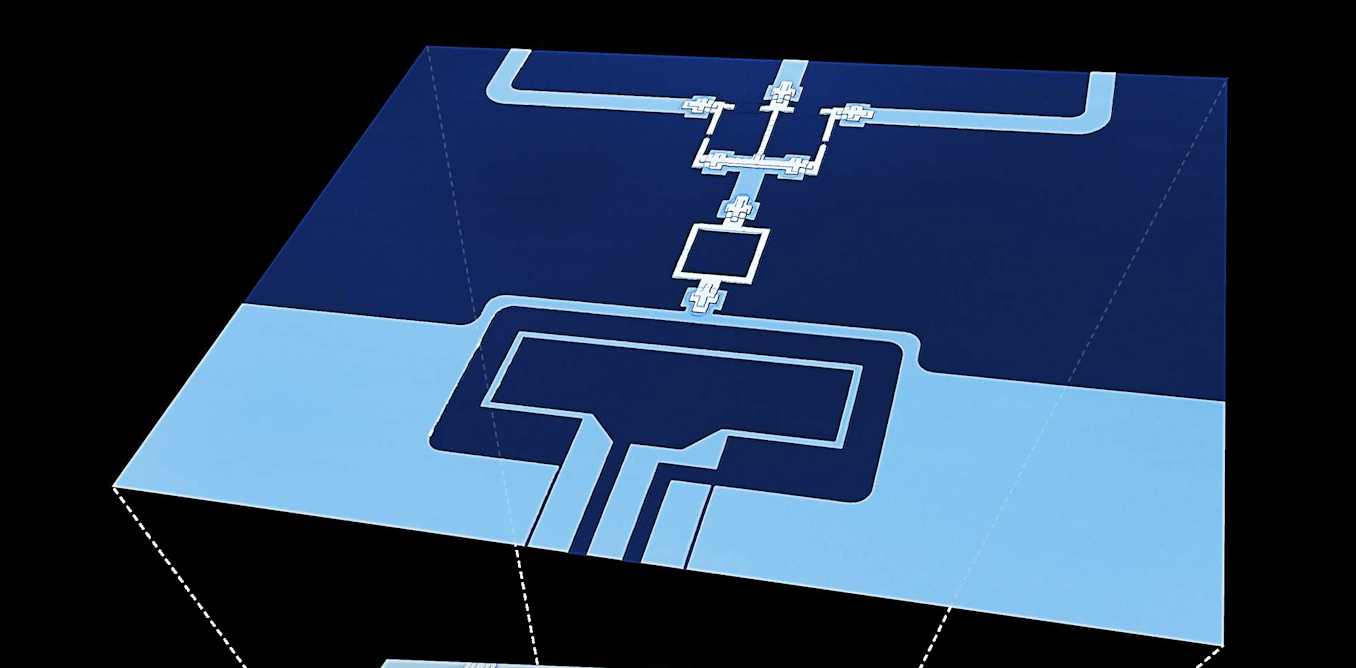Science
Nobel Prize in Physics Honors Pioneers of Quantum Technology

The 2025 Nobel Prize in Physics has been awarded to three scientists for their groundbreaking work in demonstrating the quantum behavior of superconducting circuits. This significant discovery has set the stage for advancements in quantum technology, impacting fields from chemistry to cryptography. The laureates, John Martinis, Michel Devoret, and John Clarke, contributed vital research that showed how even large electrical circuits could exhibit quantum effects, paving the way for practical applications in quantum computing.
The roots of this revolutionary research date back to the mid-1980s. In their pivotal studies conducted in 1984 and 1985, Martinis, then a Ph.D. student, and his colleagues showcased that niobium and lead circuits, when cooled to just above absolute zero, could behave as superconductors. Superconductors are materials that carry electric current without resistance, meaning they do not generate heat. Their findings revealed that quantum mechanics governs the voltages and currents in these circuits, allowing them to exist in quantized energy states and superpositions.
Understanding the implications of this work is crucial for the ongoing development of quantum technologies. The ability to describe superconducting circuits as single quantum particles enhances their utility in various applications, particularly in quantum computing. Superconducting circuits have become essential in exploring fundamental quantum physics, simulating complex physical systems, and testing protocols for precise measurements.
Applications of Superconducting Circuits
Today, superconducting circuits are at the forefront of quantum research. They are utilized for various purposes, including the creation of advanced microwave amplifiers, which are vital in communication, radar, and scientific instruments. For example, the Devoret group recently produced a near-ideal microwave amplifier based on superconducting technology, marking a significant achievement in the field.
The potential for superconducting circuits extends beyond academic research. They serve as a platform for quantum computing, where multiple quantum systems can interact and become entangled, functioning as a cohesive unit. This entanglement, alongside quantization and superposition, forms the foundation of quantum computing’s immense power. Quantum bits, or qubits, are integral to this technology and must remain coherent, controllable, and scalable to be effective.
Despite the myriad of technologies being explored, superconducting qubits stand out due to their balance of simplicity and flexibility. Researchers can easily modify circuit designs to achieve desired qubit behaviors, making them more reliable and manageable than other quantum systems, such as trapped atoms or ions.
Legacy and Future of Quantum Research
The contributions of Martinis, Devoret, and Clarke extend well beyond their initial discoveries. Martinis has led Google’s quantum processor initiative, while Devoret continues to influence advancements at the company. Clarke, now retired, has also made significant contributions to the field throughout his career, demonstrating the lasting impact of their pioneering research.
As the field of quantum technology evolves, the legacy of these laureates serves as a guiding force. Many researchers today, including those in academic institutions, are inspired by their work and strive to push the boundaries of what is possible in quantum computing. Efforts are ongoing to develop new types of superconducting qubits, enhance their coherence, and improve control mechanisms, all of which are critical for the realization of large-scale quantum processors.
The announcement of the Nobel Prize not only honors the achievements of Martinis, Devoret, and Clarke but also highlights the collaborative nature of scientific discovery. As they are celebrated for their contributions, the next generation of researchers is motivated to build upon their foundation, continuing the quest for advancements in quantum technology.
-

 World3 months ago
World3 months agoTest Your Knowledge: Take the Herald’s Afternoon Quiz Today
-

 Sports3 months ago
Sports3 months agoPM Faces Backlash from Fans During Netball Trophy Ceremony
-

 Lifestyle3 months ago
Lifestyle3 months agoDunedin Designers Win Top Award at Hokonui Fashion Event
-

 Sports3 months ago
Sports3 months agoLiam Lawson Launches New Era for Racing Bulls with Strong Start
-

 Lifestyle3 months ago
Lifestyle3 months agoDisney Fan Reveals Dress Code Tips for Park Visitors
-

 Health3 months ago
Health3 months agoWalking Faster Offers Major Health Benefits for Older Adults
-

 World3 months ago
World3 months agoCoalition Forms to Preserve Māori Wards in Hawke’s Bay
-

 Politics3 months ago
Politics3 months agoScots Rally with Humor and Music to Protest Trump’s Visit
-

 Top Stories3 months ago
Top Stories3 months agoUK and India Finalize Trade Deal to Boost Economic Ties
-

 World3 months ago
World3 months agoHuntly Begins Water Pipe Flushing to Resolve Brown Water Issue
-

 Entertainment3 months ago
Entertainment3 months agoExperience the Excitement of ‘Chief of War’ in Oʻahu
-

 Science3 months ago
Science3 months agoNew Interactive Map Reveals Wairarapa Valley’s Geological Secrets









